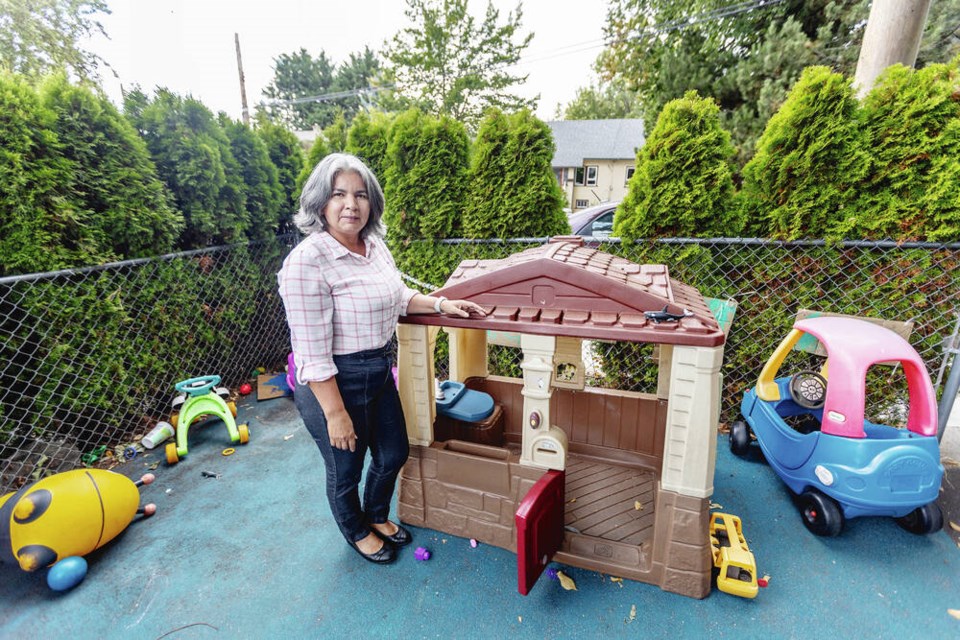Child-care experts say changes to land-use regulations in Victoria could make it easier to establish new child-care facilities, but there are still bigger hurdles to tackling the child-care deficit.
The changes, adopted last week, include allowing child-care facilities in more areas, with the exception of industrial zones, and relaxing rules for those located in house conversions.
City staff will also be able to make decisions on development permits for child-care facilities to streamline the approval process.
There was little opposition to the changes, which council adopted unanimously.
Child-care advocates and professionals surveyed by the city were generally positive, though some were skeptical the changes would translate into more childcare spaces, given the shortage of qualified child-care staff.
“It is really wonderful that they’re really moving on trying to make more sense of the system for people who want to set up a daycare centre, so they don’t have to jump through hoops that don’t make sense,” said Enid Elliot, an instructor at Camosun College’s Early Learning and Care faculty.
Elliot said a local daycare program was recently making plans to expand from eight spots to 24, using new government funding, but ran into so many zoning problems and hurdles the plans were abandoned.
She said requirements like having to pay to add a sidewalk, parking spaces and amenities like rooftop gardens put off some child-care centres.
“If you have to put a sidewalk in, that is money that is going to be taken away from the program or from creating a new building for their program,” she said.
Luz Mary Calderón, owner of Little Genius Academy in Vic West, said when she expanded from a small family daycare in her home with eight children to a group daycare with 12, it took three years and about $40,000, with provincial and municipal hoops to jump through.
“That doesn’t make any sense for a small business,” she said, adding the changes in Victoria could make a difference.
Jim Handy, the city’s manager of planning and regulatory services, said shortly after the amendments came into effect Sept. 14, an operator reached out wanting to increase the number of children they care for.
“We are optimistic that the process improvements are already having a positive impact,” he said in a statement. “Prior to the bylaw amendments the proponent would have needed to proceed with a rezoning application.”
The city has not set a target for how many new spaces are likely to be created through the changes.
Handy said the city often receives inquiries about new child-care facilities, many of which are connected to new developments or expansion of existing in-home facilities.
In the past, if those proposals required rezoning, it could take eight months and cost more than $4,000 just to get a city decision.
Calderón applauded the city for trying to do something about lack of child-care spaces, saying the need is great. She said her 12-space child-care centre, which has had a waitlist since last year, gets at least three calls a day from parents looking for a spot.
“They are really in need because if they don’t get daycare or support for the little one, they’re going to lose their job or they can’t come back to work,” she said. “This is a big issue.”
The City of Victoria estimates the minimum wait time for child care is as much as two years and the child-care spaces gap — need versus supply — grew to 4,431 in 2022.
Elliot, who has been in the industry for 40 years, said it’s a country-wide crisis and it’s been coming for years.
“It’s really gotten to such a crisis level that the federal government stepped in with the grants and helped the provinces to go ahead and really start creating child-care systems in each province,” she said, adding the problem has been exacerbated by a lack of early childhood educators (ECEs).
In the last five years or so, Camosun has quadrupled the number of ECE students, she said, while the number of instructors has jumped to 16 from three just a few years ago. “We are running to try and get people certified and licensed.”
The ECE program takes two years, though most students stay on to get their infant-toddler licence or special-needs certificate.
According to the Ministry of Education and Child Care, the province has been increasing the number of training seats and streamlining pathways for international educators.
Between 2018 and 2022, more than $27 million in bursary funding was awarded to 7,500 students and 1,713 new student spaces were created in public post-secondary ECE programs, with another 1,300 expected over the next three years, the ministry said.
The government has also enhanced wages for ECEs, with a $4-per-hour wage supplement for more than 10,000 ECEs, bringing the median wage to $26 per hour.
The province has also committed to develop and implement a wage grid to ensure early childhood professionals are properly recognized and fairly compensated. More detail on that is expected this fall.
Those steps may eventually result in more qualified educators, but it will take time.
Calderón said there are some quick initiatives that the province could look at, such as allowing family daycares to expand to allow a few more children — from eight to 10 or 12, for example.
She said currently one person dealing with eight children for a full day is difficult, but the revenue is not enough to hire help. But if the licences were expanded to allow 10 or 12 children, the operator would have enough income to hire a second educator.
“There’s at least 50 family daycares in Victoria, so adding three or four children is going to create maybe 200 new spots very fast,” she said.
Elliot suggested the city could appoint a dedicated person to help those wanting to open child-care facilities.
>>> To comment on this article, write a letter to the editor: [email protected]




